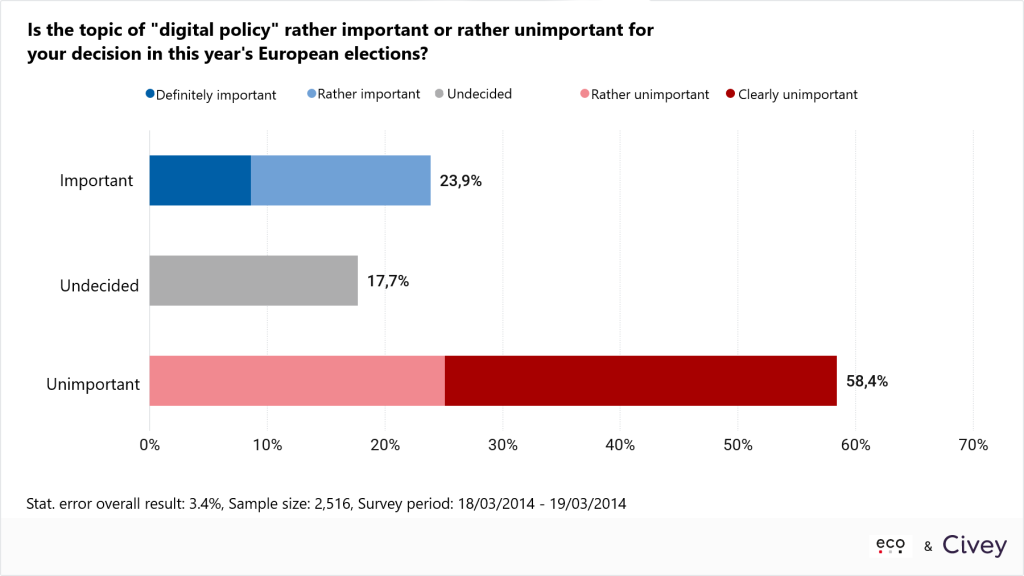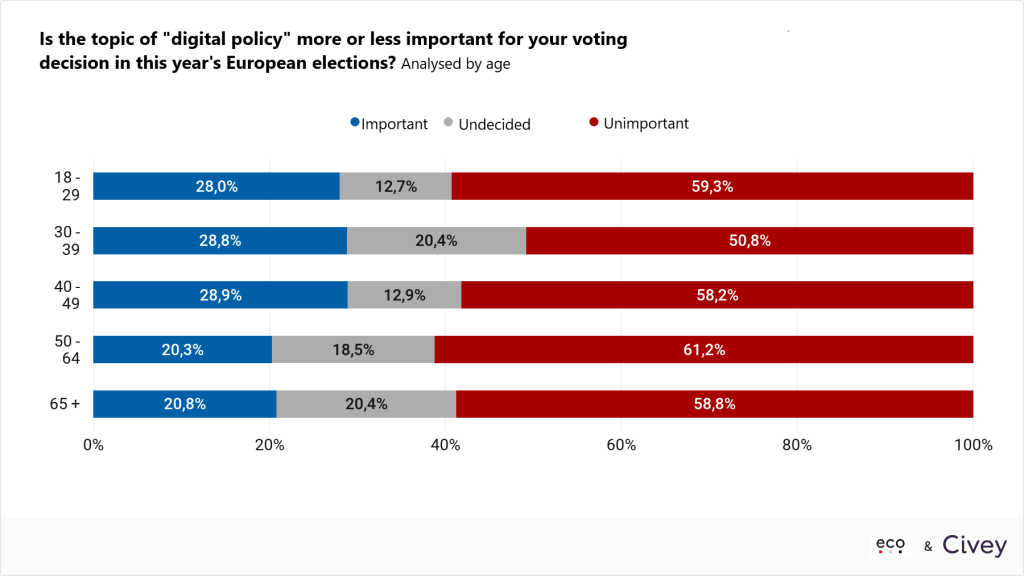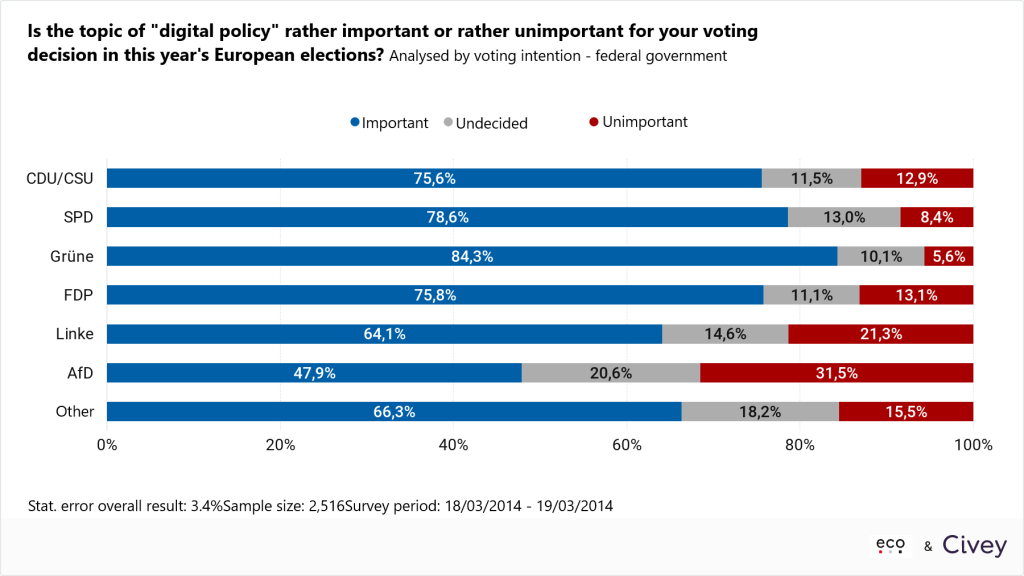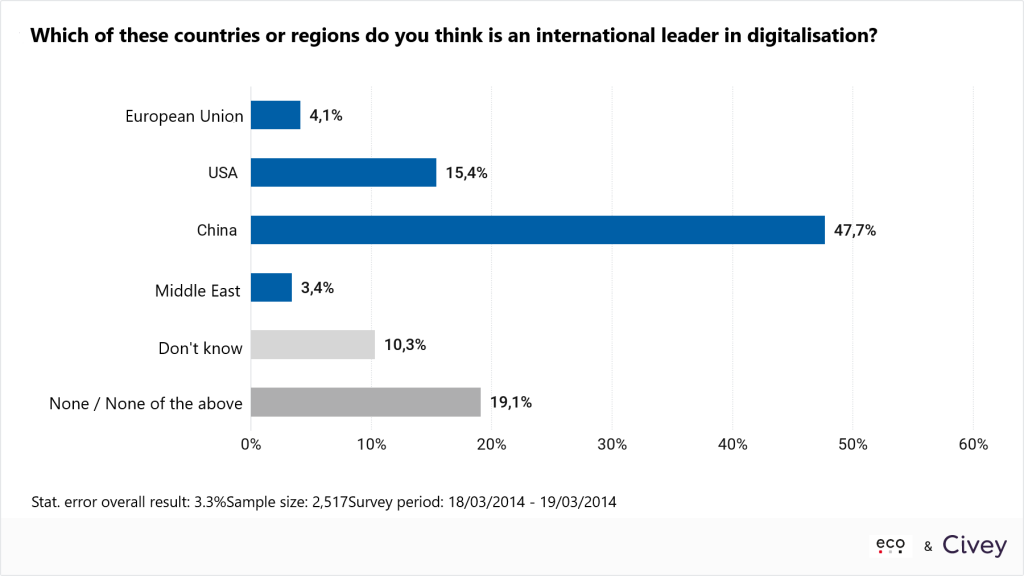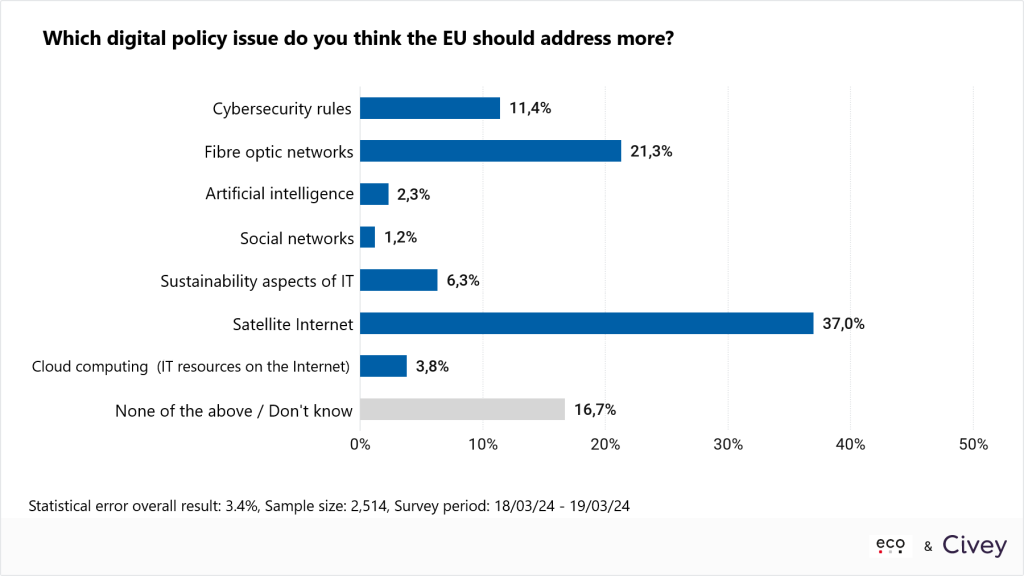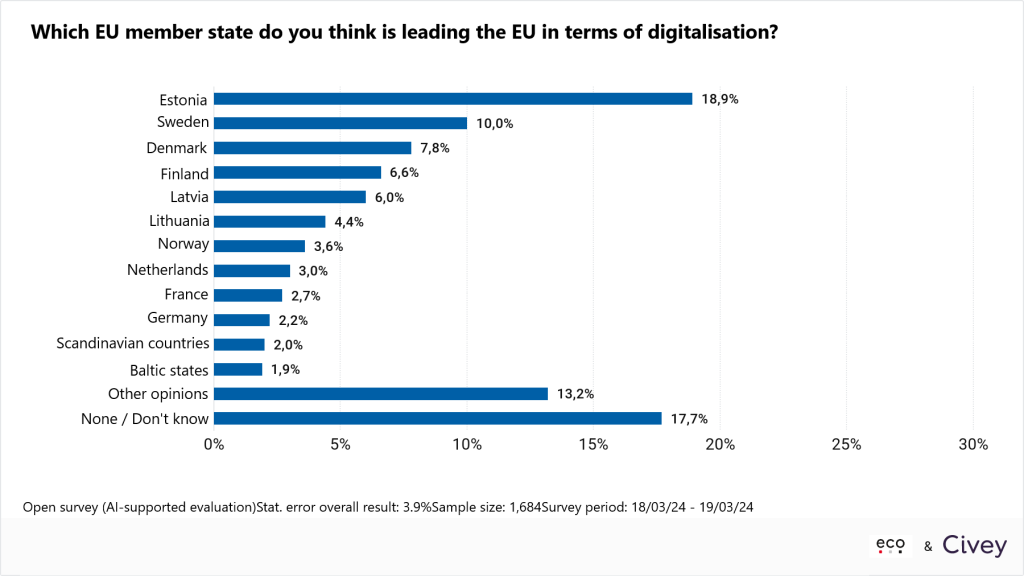eco Association presents a digital policy opinion poll on the European elections
- Survey regarding the EU elections on 9 June: For around a quarter of voters, digital policy is relevant to their voting decision
- German voters consider Estonia (18.9%) and Sweden (10%) to be the leaders in digitalisation within the EU. Germany rated poorly at 2.2%
- Voters of the Green Party (43.2%) and FDP (37.1%) place the most value on digital policy
- Top digital issues for voters in Germany: cybersecurity, expansion of digital infrastructures and AI
On 9 June, the European elections will take place, with digital policy becoming an increasing focus among German voters. In a recent representative survey of around 2,500 citizens, eco – Association of the Internet Industry investigated the significance of digital policy in their election decisions, how Germans evaluate Europe’s digital opportunities, and which digital issues are particularly important to them for the upcoming legislative term. What emerges is that the digital policy of the parties could indeed influence the outcome of this European election, as around 24% of respondents rate the digital policy of the respective parties as either rather important or definitely important for their election decisions. The field of Internet policy is therefore prioritised by approximately a quarter of Germans. At the same time, most respondents apparently see a need for catch-up in terms of digital transformation in Europe: according to the survey, only 4.1% of Germans consider the European Union to be a leading nation in the field of digitalisation.
“Europe is facing significant challenges in 2024. The economic consequences of the COVID-19 pandemic, the impact of the war in Ukraine, and the need to tackle advancing climate change are issues that we in the EU can only tackle together. Digitalisation can offer solutions in all areas and promote exchange and collaboration for greater security, sustainability and prosperity in Europe. In the coming years, it will therefore become even more important for the EU Member States to agree on a common digital policy that harnesses technological opportunities and simultaneously provides companies in Europe with a standardised digital regulatory framework and legal certainty,” says eco Chair of the Board Oliver Süme. As he goes on to say, “It is time to recognise digital transformation as an opportunity to renew and strengthen Europe in order to ensure its long-term security and competitiveness. This need is also clearly reflected in the survey results of German voters.”
Only 4.1% of Germans see the European Union as a digitalisation leader; China and the USA are regarded as the digital leaders
According to the eco opinion poll survey, almost half of Germans consider China by far the leading nation in digitalisation (47.7%), followed by the USA (15.4%). The European Union ranks third with 4.1%. Among the leading EU Member States, Estonia (18.9%), Sweden (10%) and Denmark (7.8%) are perceived as the most digitalised. Germany, on the other hand, performs poorly in comparison, with a score of just 2.2%.
“It is evident that neither Europe nor Germany have been able to score points among German voters with their digital policies. This realisation should serve as a wake-up call. A rapid course correction is essential, because without consistent digitalisation, our economic future is at stake,” says Süme.
For around a quarter (23.9%) of voters, digital policy is relevant to their election decision
The poor digitalisation assessment of the EU is in direct contrast to the importance of digital policy in this election: 23.9% of respondents stated that the issue was important or even very important to them in the European elections. Particularly in the age groups of 18-29 year olds (28.0%), 30-39 year olds (28.8%) and 40-49 year olds (28.9%), a high relevance of a party’s digital policy programme to the election decision is evident. In particular, voters of the Green Party (43.2%), the FDP (37.1%) and the Left Party (36.4%) emphasise the significance of this topic.
Top digital issues for voters: Cybersecurity, expansion of digital infrastructures and AI
The surveyed voters identified cybersecurity as the most important issue in digital policy for Europe (37.0%), followed by the nationwide expansion of fibre optic networks (21.3%). In third place is the future topic of artificial intelligence (11.4%).
“The opinion poll ahead of the EU elections clearly emphasises the growing importance of digital policy for German voters and the urgency for Europe to intensify its focus on cybersecurity, infrastructure and AI. The upcoming term from 2024-2029 must be used optimally to strengthen Europe in a sustainable manner, to consolidate the Single Market, modernise and digitalise the institutions of the European Union and its Member States, and improve the resilience of the EU,” Süme concludes.
“EU Election Digital 24”
The eco theme platform for the 2024 European elections: Ahead of the election, eco is participating in the digital policy thematic debate with an agenda focusing on the most important key digital policy demands ahead, voices from the Internet industry, current figures and survey results, and many other exciting contents. All information at: https://www.eco.de/themen/politik-recht/eu-agenda/#EUAgenda
*On behalf of eco, the market and opinion research institute Civey surveyed around 2,500 people in Germany over the age of 18 from 18 March 2024 to 19 March 2024. The statistical error of the overall results is 3.3%-3.9%.


